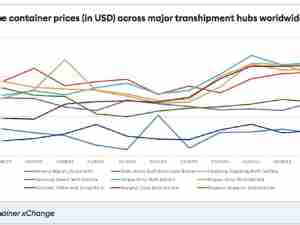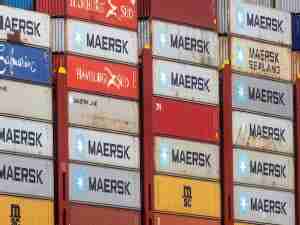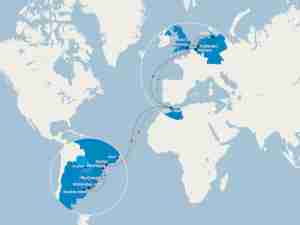Another Black Swan for Commodities (and Everything Else)
By: Liam Denning | Jan 05 2017 at 01:27 PM | Maritime
Barclays released a flock of black swans on Thursday, with a report listing all the things that might blindside commodity markets in 2017. One always worth keeping an eye on, but especially so this year: North Korea.
North Korea matters not because of how much raw material it produces or consumes—both negligible—but because of where it is, sandwiched between the rising superpower of China and South Korea, a major ally of the incumbent superpower, the U.S.
North Korea’s leader, Kim Jong Un, kicked off the year by claiming his regime is close to test-launching a missile that could hit the West Coast of that incumbent superpower. The incoming American president, not known for letting such rhetoric go unchallenged, used his own public address system to rebut it:
The more relevant tweet came just after, though:
That second tweet showed that, whether or not Los Angeles really faces an imminent threat from Pyongyang, Kim may help unleash what increasingly looks like a realistic black swan in 2017: a U.S.-China trade war.
Why North Korea Matters: Location, Location, Location
Trump’s antipathy to what he characterizes as an unbalanced relationship between the U.S. and China goes beyond mere rhetoric, if his appointments are any guide.
Peter Navarro, who will run the White House National Trade Council, was joint author of a report published in September asserting, among other things, that China’s entry to the World Trade Organization in 2001 was “a critical catalyst for America’s slow growth plunge.”
Meanwhile, Robert Lighthizer, Trump’s nominee for U.S. trade representative, shares similar views and has experience squeezing trading partners viewed as getting one over on Americans: namely, Japan in the 1980s, when Lighthizer was part of the Reagan administration. And Japan is an ally.
What makes this more-hawkish stance especially risky is something due to happen later this year: China’s own leadership transition around the Communist Party’s 19th Congress (these gatherings happen twice every decade). It isn’t like President Xi Jinping faces the sort of battle that brought Trump to power, of course. But, having already moved very quickly to consolidate his own leadership in the past few years, he will be keen to promote many of his allies to positions of power. So being seen as soft in the face of a more aggressive, and vocal, American administration—which, for example, prods at particular sore points such as Taiwan—is a no-no.
North Korea, in 2017 especially, is a wildcard. In part, this is because its provocations are driven less by foreign policy considerations per se and more by Kim’s need to manage internal rivalries, according to Peter Zeihan, a geopolitical consultant and author of “The Absent Superpower.” He says Kim’s need to balance inter-generational factions in North Korea’s military, especially, means the situation is “more unstable than it’s ever been.”
The upshot is that North Korea’s behavior won’t necessarily be modified by the particular state of U.S.-China relations at that particular moment. Even a fizzled missile test—itself possibly prompted by rhetoric from Washington—would offer more ammunition for a concerted push against China over trade.
And while Beijing knows that neither a trade war with the U.S. nor a crisis on the Korean peninsula is really in its best interests, domestic politics might well compel it to dig in its heels on behalf of its troublesome ally. The risk of miscalculation in this sort of multi-sided brinkmanship is high.
When it comes to commodities, be it oil or major metals such as copper, Chinese demand is what really counts. And this is largely the product of a free-trading global order implicitly underwritten by U.S. commitments. North Korea was never part of that but could well make its own inimicable, ill-timed contribution to upending it.









